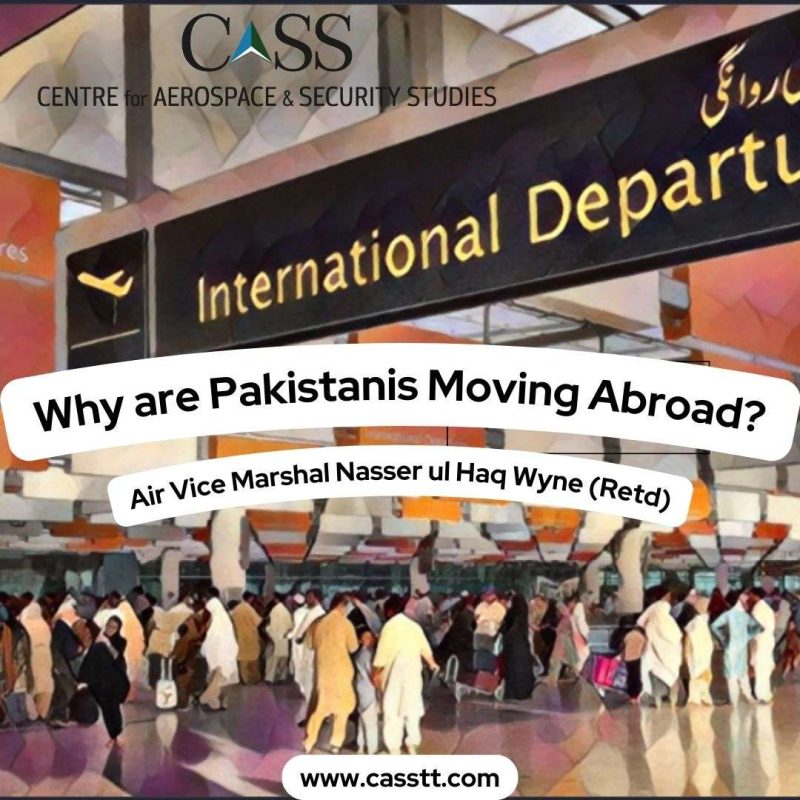Barbers are generally very talkative. They always like to give their point of view on host of issues, ranging from what’s happening in locality to politics and sometimes even religion. I try and get a haircut at least once a month and visit different barber shops. Last month when I visited a nearby barber shop, the barber was very quiet which was a bit unusual. So, I initiated the conversation by asking him how his work was progressing and if he was earning enough to cover all his expenses while also saving some money. He responded that the business was doing well, but… he trailed off for a moment before adding, ‘I am planning to move to Dubai. My friend already has a shop there, and I had worked there for many years before returning just a couple of years ago.’ . I asked him why he wanted to leave if his business was doing well here. He responded that he did not feel secure here. If someone were to cheat or rob him, he would have no place to lodge a complaint. Even if his electricity bill were incorrect, he would not be able to get it rectified and would have to pay it as is, or face disconnection. Furthermore, he expressed uncertainty about potentially being accused of a crime he had not committed at all. I attempted to reassure him that a system of law and order did exist, emphasising that we shouldn’t lose hope. His responses, however, were deeply unsettling, conveying a despair that words can’t fully capture. He had lost faith in the impartiality of our justice system and appeared genuinely fearful. I earnestly tried to persuade him that there’s still light at the end of the tunnel, urging that giving up hope isn’t aligned with our religious teachings either. He remained unconvinced, but chose not to debate further, falling silent. When I stopped by the barber shop the following month, I discovered he had already departed for Dubai, having sold his business to a new vendor.
The barber’s story resonated when I met a friend last week who expressed similar sentiments. This friend had dedicated 40 years of his life to elite institutions, and post-retirement, he enjoyed the comfort of knowing his children were well-settled in their respective jobs and married lives. However, during our conversation, he revealed a recent gathering where he apologised to his entire family. Curious, I inquired about the reason for such an unexpected apology, especially considering all he’d done for them over the years. His response took me aback. A decade ago, his children had expressed desires to study and settle abroad, wishes he’d turned down. Now, he regrets that decision deeply. The relentless surge of inflation has tightened the noose around even basic expenses. And although his children have jobs, the absence of job security looms large. The uncertainty of our nation’s political and economic landscape only heightens their fears of an unpredictable tomorrow. Hearing these concerns from someone I have always perceived as hopeful and optimistic deeply unsettled me.
More than 450, 000 Pakistanis have left the country since the beginning of this year. Emigration for Pakistanis is not new; better life style, job opportunities and education have been the main reasons for departing the country. Off late, skilled, educated and those who were well settled have started to leave as well. This is a new phenomenon which needs to be analysed. Here are a few major reasons which are forcing people to emigrate or shift their businesses abroad:
Political Instability: There are frequent changes in governments and hence, laws and policies. Every new government modifies laws as per their convenience which may not always be citizencentric.
Economic Turmoil: Economic condition of the country has remained dismal over the last few decades. As governments change frequently, it’s easy for the new one to blame the previous regime for poor policies and then start to burden the masses with new indirect taxes. Inconsistent economic policies, corruption and cronyism have reached a level where any efforts to recover the economy are not working at all.
Human Rights Concerns: Pakistan’s human rights record has drawn attention over the years. There have been concerns and reports highlighting issues like alleged mistreatment, extrajudicial incidents, and potential infringements on human rights. These considerations might also be among the factors influencing some individuals’ decisions to emigrate.
Many more reasons could be listed but imagine a place where the laws are constantly changing, and the government is unstable. Where corruption is rampant and human rights are not respected. Where people feel unsafe and uncertain about the future. Under these circumstances, it is no wonder that so many people are choosing to emigrate. They are leaving their homes and families in search of a better life. A life where they can feel safe and secure. Where they can have confidence in their government and the laws of the land. Where they can pursue their dreams and build a better future for themselves and their families. The decision to emigrate is a difficult one. It is not something that people take lightly. But for many Pakistanis, it is the only way to build a better future.
To restore people’s confidence, there is no single solution to the problem of migration. It is a complex issue with a variety of causes. To start with, the state should focus on providing basic human rights. When every citizen is assured equal access to justice, business opportunities, education, and healthcare, it not only fosters trust in governmental institutions but also cultivates patriotism and a sense of national pride. Such a single foundational step could have profound positive impacts.
Air Vice Marshal Nasser Ul Haq Wyne (Retd) is a Director at the Centre for Aerospace & Security Studies, Islamabad, Pakistan. The article was first published in the Daily Asian Sun. He can be contacted at: cass.thinkers@casstt.com
Design Credit: Mysha Dua Salman




